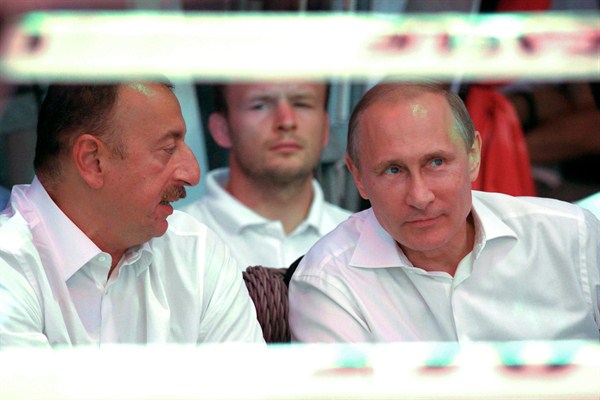On Aug. 1, heavy clashes erupted along the Armenian-Azerbaijani border, prompting worries that the unresolved conflict over the contested region of Nagorno-Karabakh was about to reignite into a full-fledged war. With a death toll of at least 15, the skirmish was the worst outburst of violence between Armenia and Azerbaijan since the cease-fire protocol came into effect in 1994. Publicly, each side has tried to blame the other for the escalation. However, a number of factors suggest that the recent escalation might have less to do with the two belligerent parties and more with Russian President Vladimir Putin’s growing geopolitical ambitions.
The connection between the fighting in Nagorno-Karabakh and Russian expansionism is hard to miss. In the weeks leading up to the skirmish, high-ranking Kremlin officials including Sergei Glazyev, the Putin aide in charge of expanding the nascent Eurasian Economic Union (EEU) of Russia, Belarus and Kazakhstan, spoke fervently about the need to convince the energy-rich, geostrategically important Azerbaijan to join the bloc. Unsurprisingly, Russia responded to the clashes before Armenian and Azerbaijani officials could publicly explain what had gone wrong on the frontline. Putin then quickly organized a meeting in Sochi between Azerbaijani President Ilham Aliyev and his Armenian counterpart, Serzh Sargsyan, on Aug. 8. Given that negotiations to host a bilateral meeting over Nagorno-Karabakh in Paris had dragged on for months, the speed with which the parties decided to hold talks in Russia appears unusual.
While Armenia is officially committed to joining the EEU, Azerbaijan has chosen to stay out of the bloc’s negotiations, while continuing to negotiate an association agreement with the European Union. Baku’s disinclination to join the EEU is understandable. For a resource-rich country that enjoys easy access to global energy markets, accepting a restrictive political-economic union makes little sense. Moreover, it seems counterintuitive for a kleptocratic regime like Aliyev’s to voluntarily accept the reign of a much stronger kleptocracy in the form of Putin’s. If Azerbaijan were to join the EEU, Kremlin cronies would compete with Baku oligarchs for the most lucrative domestic markets, such as banking, telecommunication and state-sponsored infrastructure contracts, while denying the Aliyev clique a similar advantage in Russian markets.

